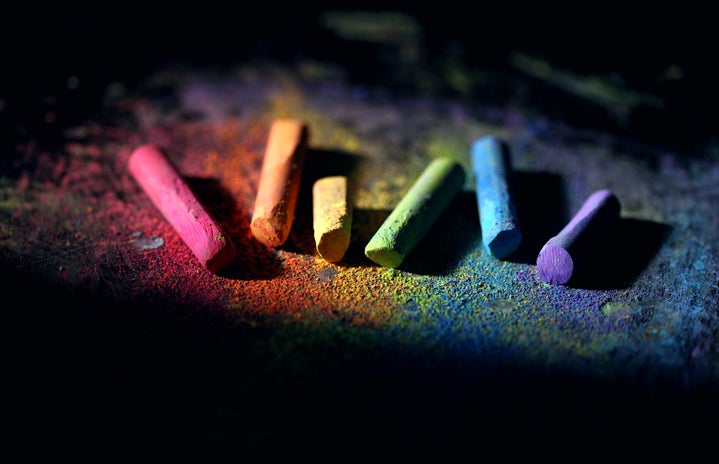The month of June is known as Pride Month to commemorate the Stonewall riots and the LGBTQIA+ community’s ongoing fight for equality and liberation, with the movement’s roots in American beginning as early as the 1920s. Moving into the 1950s, there were multiple demonstrations held across the country such as the Daughter of Bilitis and Mattachine Society. However, the Stonewall riots in June of 1969 are seen as the wavemaker that landed the movement its notoriety. With Marsha P. Johnson and Sylvia Rivera, two Black and Brown transgender women, at the forefront of this event, their resistance and activism would help pave the way for the future resilience of the movement.
Yet such a monumental period of upheaval is not something that I was taught or even heard uttered in any class, book or from any educator until college. For a protest that occurred at the tail end of the Civil Rights Movement, American history has consistently worked to omit the historic event.
As I’ve gotten older, I’ve realized that not speaking about Stonewall in any sector of my education or broader society is not an isolated incident, nor is it done by mistake. In fact, the erasure and vilification of queer people is deeply entrenched in American society. I learned about James Baldwin, the Black American author, not James Baldwin, the Black and gay American author. My introduction to Audre Lorde was as this powerful female writer, but not a powerful lesbian writer. Harvey Milk doesn’t get mentioned in my political science classes. How many times have we seen Bayard Rustin stand at the right side of Dr. Martin Luther King Jr. in pictures without ever saying his name or acknowledging his queer identity? Throughout history, our cisgender-heteronormative society has forced us to separate queerness from queer people in order to maintain the status quo. That is, a status quo that erases the presence, strides, and mere existence of queer people and culture.
Instead of embracing the recent waves of LGBT+ representation and people openly declaring their sexualities or gender identities with pride, those committed to maintaining methods of erasure have denoted the LGBT+ community to some “new age fad” or “trend,” only further entrenching the homophobia prevalent in society.
Now, I know I could write a dissertation-length article about queer activists and the contributions of queer people throughout time. Yet the fact of the matter is queer history is just a specific sector of history. At the core, it’s just that– history. However, I think there is a larger issue at hand worth tackling.
Queer people know who they are. They know their identities aren’t trendy variables here today gone tomorrow. This has always been the original narrative. To denote the LGBT+ community as a “trend” is to imply that their existence is only recently relevant, which is disingenuous and quite frankly ahistorical. The reality is that for as long as there have been people, queerness has existed.
The only trend is American society’s constant destruction of LGBTQIA+ people, which has been incorporated into every fabric of our society. The trend has always been to minimize their existence because so often have their identities been ostracized, othered and even criminalized.
However, this “trend” myth to uphold American linearity does make sense. In the discussion of the mass genocide of Native Americans, so often we fail to acknowledge the existence of Indigenous Two-Spirited individuals, whose identities transcend our understanding of gender identity in the Western world. We choose not to remember that those who identify as LGBTQIA+ were classified as “mentally ill” until 1973 and met with inhumane treatment and criminalization. How little is discussed of the 50,000 queer people that the US government and society at large believed to be expendable and died during the HIV/AIDS crisis? Direct legislative discrimination like Don’t Ask Don’t Tell and anti-trans bills being passed around the country. This doesn’t even mention the day-to-day discrimination queer people face simply for just existing.
All that to say, I can see how one would confuse queerness as a “trend” with the actual trend of wiping out and suppressing generations of LGBTQIA+ individuals. Society does not allow queer people to grow old, from the murders of Black and Browns trans women to the states that still have LGBTQ+ Panic defense laws in place.
As a co-conspirator and ally to the LGBTQ+ community, I recognize that allyship is a verb. It is a 24/7, 365 day a year responsibility. Therefore, as queer people continue to reassert themselves in history and assert themselves in society, part of our job as allies is to stand back and let them. Let them make up for the repeated moments of erasure in history and society and that alone will be an infinite measure of time.
This article barely scratches the surface when it comes to the issues the LGBTQIA+ community faces. However, to all the allies and co-conspirators, I hope to start a conversation to understand how important it is to name queerness and assert it when possible. Because when we don’t name it, we continue to participate in the silencing of it.
Let your voice sound alongside the LGBT+ community as they disrupt the myths American history tells us. With that, I leave a list of LGBT+ resources as those in the community are the voices that deserve to be elevated and sought for to tell their stories, struggles and success.
Resources:
Gay, Lesbian & Straight Education Network (GLSEN)
Parents, Families and Friends of Lesbians and Gays (PFLAG)
Advocates and Activists (Instagram):
Organizations to Donate to:
Trans Lifeline
The Trevor Project
https://www.thetrevorproject.org/
The Marsha P. Johnson Institute
LGBTQ Freedom Fund
The Okra Project:


